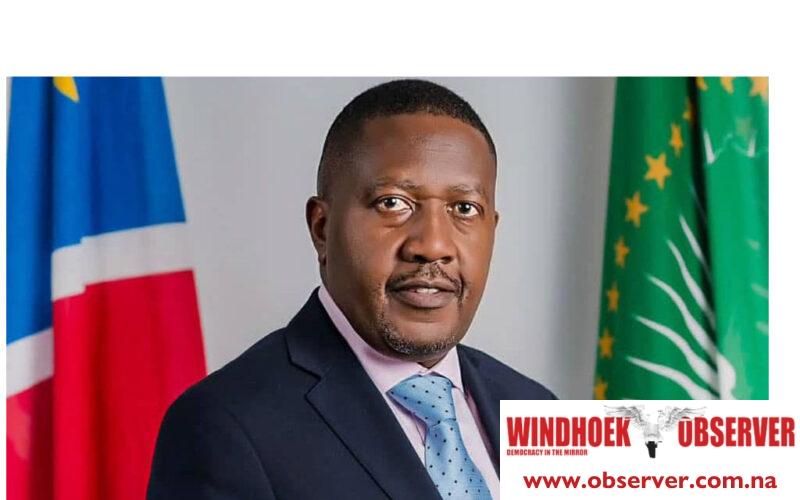Niël Terblanché
The governments of Namibia and Ghana have convened in Swakopmund for the fifth session of the Joint Commission of Cooperation (JCC) to review and reinvigorate their bilateral ties.
The executive director of the Ministry of International Relations and Cooperation, Ambassador Penda Naanda, officially launched the session and expressed hope that the positive exchanges between the two countries will result in increased cooperation between the two countries.
The last meeting between the two countries of this kind took place in Ghana in 2022.
Naanda pointed to the already excellent bilateral relations between Namibia and Ghana, noting significant growth in cooperation and increased interactions between their private sectors and citizens.
However, he stressed the need for tangible results in trade and investment to match their strong political relations.
“The fifth session affords us an ample opportunity to increase the momentum generated,” he said.
The session’s agenda includes reviewing the implementation of decisions made during the 4th Session in Accra, Ghana, in 2022.
Key areas of focus include political and diplomatic issues, trade and investment, SME development, youth and sports, immigration, transport and maritime, agriculture and agri-business, ports management, mining, energy, tourism, education, and health.
“Our ministers have mandated us to formulate deliverables to effect socio-economic development in our two countries. The signed agreements provide a roadmap for strengthening cooperation in the identified sectors. Our joint efforts to promote economic growth and sustainable development should enjoy priority,” Naanda said.
He stressed the importance of innovative measures to connect the private sectors of both countries, taking advantage of the Africa Continental Free Trade Area.
He also said that reviewing the implementation of relevant Memoranda of Understanding (MoUs) is crucial for the movement of goods and services between the port authorities of the two countries.
Naanda noted the success in bilateral trade, with Namibian beef finding a market in Ghana and Ghanaian shea butter, cosmetics, and fabrics entering the Namibian market.
He also mentioned Namibia’s recent oil discovery and the potential to learn from Ghana’s experience, including local content laws.
Cultural exchanges are another focal point, emphasising their integration into the agenda to enrich the cultural identity of both nations.
Naanda called for enhanced coordination and reciprocal visits between various ministries and agencies to ensure the full implementation of decisions and increase the visibility of bilateral cooperation.
The two-day session will feature deliberations in various sub-committees, covering political, diplomatic, and legal matters, socio-economic and cultural matters, and economic and infrastructure matters.
Naanda urged all delegates to focus on producing quality reports with realistic recommendations for consideration and adoption by the Ministerial Session.
“I believe we will all agree that the significance of the JCC lies not in the number of agreements concluded but in their timely implementation, so as to impact the lives and livelihoods of our people,” he said.
He also suggested elevating the JCC to a bi-national commission, co-chaired by the heads of state of both countries, to further enhance the excellent relations that already exist.




